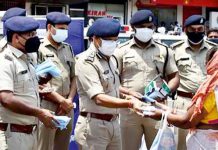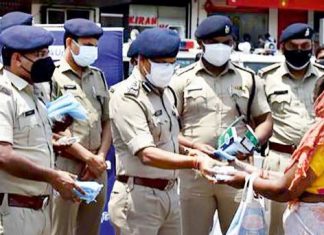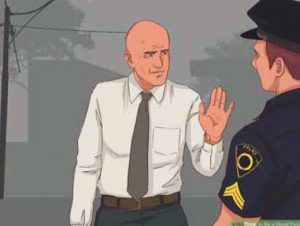 Training in a police academy does help recruits learn the ropes of the challenging profession. However, there are many more things to be learnt outside the portals of the police training institutes. What does it take to develop into a good police officer and achieve greatness in this hard and risky job? PROTECTOR has accessed the experience and wisdom of veterans in the field.
Training in a police academy does help recruits learn the ropes of the challenging profession. However, there are many more things to be learnt outside the portals of the police training institutes. What does it take to develop into a good police officer and achieve greatness in this hard and risky job? PROTECTOR has accessed the experience and wisdom of veterans in the field.
What to be does it take great police officer?
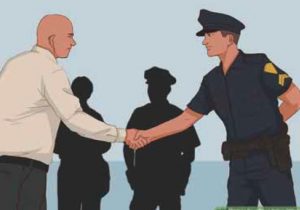 Being a good police officer takes dedication, hard work, and a willingness to always be learning. It’s no secret that it’s a tough job! If you put serving your community first, you’ll be off to a good start. You can also work together with your fellow officers to develop a sense of the shared values and principles you should focus on in your work. Then, you’ll have a better idea of the specific skills you would like to develop to meet your goals as an officer.
Being a good police officer takes dedication, hard work, and a willingness to always be learning. It’s no secret that it’s a tough job! If you put serving your community first, you’ll be off to a good start. You can also work together with your fellow officers to develop a sense of the shared values and principles you should focus on in your work. Then, you’ll have a better idea of the specific skills you would like to develop to meet your goals as an officer.
Building bridges with Communities
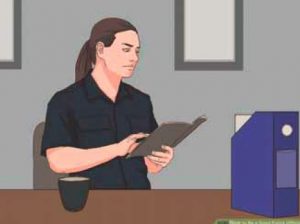 Talk to people in your community. Spend some time walking the streets in your area. Talk to civilians, to know them and to introduce yourself. When people know the police officers in their community, they’ll have a better relationship with them. You’ll have a better sense of the community that will help you protect it and resolve any issues
Talk to people in your community. Spend some time walking the streets in your area. Talk to civilians, to know them and to introduce yourself. When people know the police officers in their community, they’ll have a better relationship with them. You’ll have a better sense of the community that will help you protect it and resolve any issues
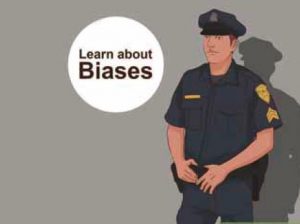 Participate in community events
Participate in community events
There are number of ways for police officers to make a positive impact in their community outside of their regular work. Think of these as opportunities to strengthen ties with the residents of your area, and to help them build trust in their police force. These are some things you can try:
Running toys for tots drive: Hosting “Shop with a Cop” events at holidays and back-to-school times to help children and families who are financially needy. Volunteer to visit schools, community organizations, religious centers, and other locations to meet people and talk about the work that police officers do.
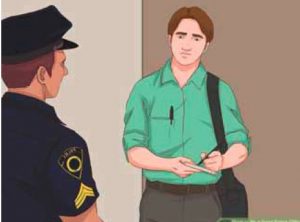 Study the demographics of your community: To best serve your community, you need to know as much as possible about it. Talking to individuals face-to-face will tell you something about what’s important to them, and what they’re concerned about. Getting a big-picture view of your community will also help you serve them with sensitivity. Look at census data and other sources to learn things like:
Study the demographics of your community: To best serve your community, you need to know as much as possible about it. Talking to individuals face-to-face will tell you something about what’s important to them, and what they’re concerned about. Getting a big-picture view of your community will also help you serve them with sensitivity. Look at census data and other sources to learn things like:
- What is the average age in my community?
- What age range do the majority of people fall into?
- What are the gender, race, and ethnicity breakdowns of the population?
- What is the average household income in the area?
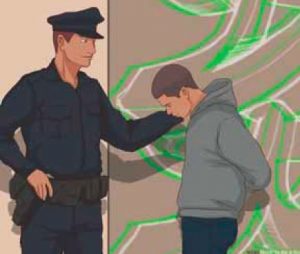 Learn about biases and how to overcome them: Serving a diverse community is the reality for police officers. It’s important to identify biases that may impact your thinking so that you can overcome them in order to make good judgments in your police work.
Learn about biases and how to overcome them: Serving a diverse community is the reality for police officers. It’s important to identify biases that may impact your thinking so that you can overcome them in order to make good judgments in your police work.
Biases, when unchecked, can lead to problems like racial profiling. Evidence shows that they can be overcome with proper training. Ask your superiors to host a workshop on diversity to help officers. Invite experts trained in the areas of diversity and biases to come and speak to your force.
 Be as forthcoming as you can with the media: Sometimes, it’s necessary to withhold information from the press, especially for ongoing investigations. Appearing unnecessarily secretive, however, will make it harder for people to trust the police force. If you can provide the media with the information they request, do so. If you can’t divulge information for some reason, tell them something like “I can’t comment on that right now, because the investigation is ongoing. However, I promise to release the information to the public as soon as it is possible.”
Be as forthcoming as you can with the media: Sometimes, it’s necessary to withhold information from the press, especially for ongoing investigations. Appearing unnecessarily secretive, however, will make it harder for people to trust the police force. If you can provide the media with the information they request, do so. If you can’t divulge information for some reason, tell them something like “I can’t comment on that right now, because the investigation is ongoing. However, I promise to release the information to the public as soon as it is possible.”
Developing your values
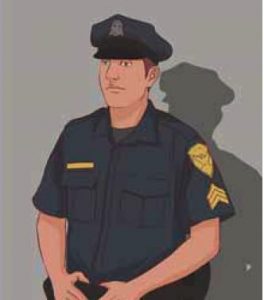 Talk with your fellow officers about police culture. Ask each member of your force to list the five values that are most important to them as officers. Then, share them with all personnel and discuss.
Talk with your fellow officers about police culture. Ask each member of your force to list the five values that are most important to them as officers. Then, share them with all personnel and discuss.
Ask yourself: What kind of relationship do these values suggest you have with each other and with your community? Is it an “us versus them” relationship, or do you see yourselves working together with your community?
 Come up with a list of official values: Now’s the chance for you and your force to establish what you should aim for as officers. Look at the lists of values and decide which ones are important enough to adopted officially. Then draw a list be and share it with your force. Ask questions like:
Come up with a list of official values: Now’s the chance for you and your force to establish what you should aim for as officers. Look at the lists of values and decide which ones are important enough to adopted officially. Then draw a list be and share it with your force. Ask questions like:
- What goals do you want to reach in your community?
- How do you want the public to perceive your force?
- How will you evaluate yourselves to ensure you’re doing your job well?
- How will officers be reprimanded for not serving well?
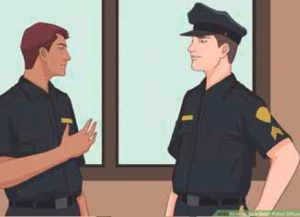 Share your list of values with the public. If you want your community members to trust you and understand the important work officers do, let them know about your values. Ask if the list of official values can be shared on your force’s website or social media, so that people can be aware. They’ll appreciate seeing statements on principles that are recognized as foundation to policing, including:
Share your list of values with the public. If you want your community members to trust you and understand the important work officers do, let them know about your values. Ask if the list of official values can be shared on your force’s website or social media, so that people can be aware. They’ll appreciate seeing statements on principles that are recognized as foundation to policing, including:
- Upholding democracy.
- Preserving human life.
- Preventing and solving crime.
- Involving the community.
- Dealing with job-related stress.
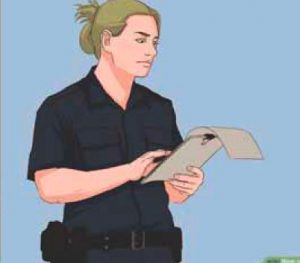 Focus on developing a sense of compassion for others. Police work, at its foundation, is about protecting and serving people. perform it well, you have to see through the eyes of others, and try to feel what they do. Compassion helps you in good decisions, especially in the heat of the moment.
Focus on developing a sense of compassion for others. Police work, at its foundation, is about protecting and serving people. perform it well, you have to see through the eyes of others, and try to feel what they do. Compassion helps you in good decisions, especially in the heat of the moment.
For instance, if you find yourself in the midst of a domestic dispute where one party is agitated, compassion will help you realize that they are not necessarily directing anger at you to be threatening, but simply expressing how upset they are. Likewise, if you learn to recognize signs of mental illness, you can understand when an individual’s behavior is caused due to a disease rather than criminal intent.
 Look to conflict resolution rather than the use of force. There are times when force is necessary to protect citizens or yourself. However, think of the question of whether or not to use force as a matter of human life, not the preservation of law. Before using force against a person, ask you questions like “Is the use of force necessary in this case? Have I done everything I can to protect this person’s life without the use of force?”
Look to conflict resolution rather than the use of force. There are times when force is necessary to protect citizens or yourself. However, think of the question of whether or not to use force as a matter of human life, not the preservation of law. Before using force against a person, ask you questions like “Is the use of force necessary in this case? Have I done everything I can to protect this person’s life without the use of force?”
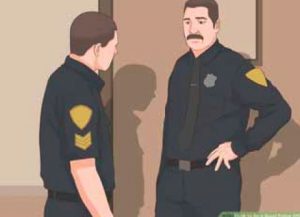 Even if you were required to undergo training in the proper use of force, ask your superiors if they can host a refresher course for officers.
Even if you were required to undergo training in the proper use of force, ask your superiors if they can host a refresher course for officers.
Seek a work-life balance. Being a police officer can be extremely stressful. If stress builds up and isn’t dealt with properly, it can cause you to make serious mistakes on the job. As an officer, you do not want to harm anyone or perform less than your best because of stress.
- Make time regularly to relax and take your mind off work concerns.
- Try to spend time with friends and family as often as you can.
- Take a vacation if you have the opportunity.
- Consult a psychiatrist (mental health specialist) if you feel stress is impacting your work performance.
 Improving your skills
Improving your skills
Find a mentor. with an experienced officer for guidance, you can make a big difference. You’ll gain both moral support and practical knowledge from a mentor. If your force doesn’t already have a formal membership program, ask about starting one.
Meet your mentor at least once a month on lunch to talk about how things are progressing.
Further your education. Studies show that officers who get advanced education become better at their jobs. You could think about getting a degree in an area like criminal justice, if you don’t already have one. If you already have a degree, you could also seek an advanced degree, such as a Master’s, or just take continuing education classes in areas such as:
- Criminal justice
- Conflict resolution
- Interpersonal communication
- Cyber security
- Forensic science
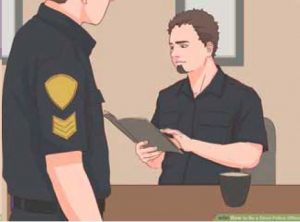 Ask for a review, if you haven’t received one in a while. Talk with you commanding officer about your job performance. What are your strengths? Your weaknesses? What areas should you focus on improving? This kind of feedback is very valuable when trying to become a better police officer.
Ask for a review, if you haven’t received one in a while. Talk with you commanding officer about your job performance. What are your strengths? Your weaknesses? What areas should you focus on improving? This kind of feedback is very valuable when trying to become a better police officer.

